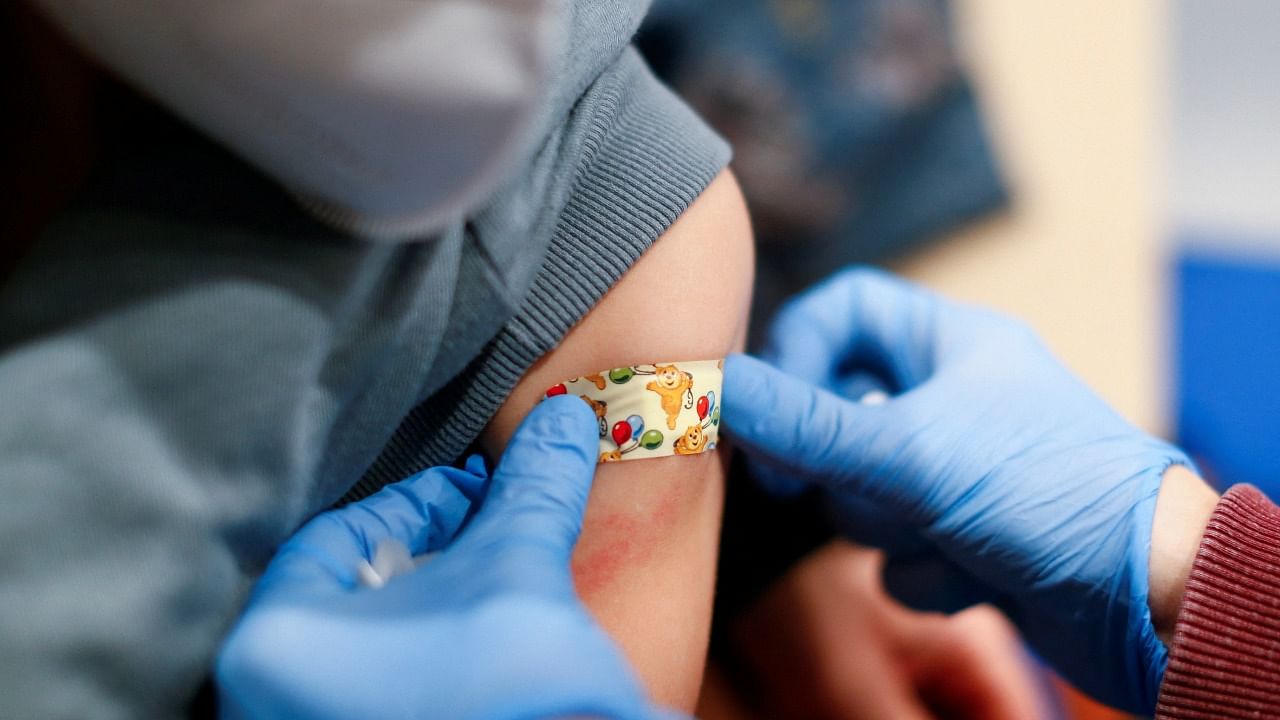
The Covid vaccine developed for small children aged 2 to 4-year-olds by US drugmaker Pfizer generates weaker immune response than expected, the company has announced.
The company said a routine review by the external independent Data Monitoring Committee (DMC), showed that the two child-sized doses of the Pfizer/BioNtech vaccine were not producing the expected immunity in the 2 to 5-year-old, although they were doing so for the babies up to age 2.
Pfizer had earlier taken the dosage size down for children - for kids aged 12 and above, the dose is 30 micrograms of vaccine. But the drugmaker reduced this down to 10 micrograms for kids 5 to 11 and took it even lower, to 3 micrograms a dose, for the youngest children.
Early tests had indicated that this small dose would produce a strong immune response in the children and minimise the risk of side effects. But the interim data indicates this small dose regimen did not produce the expected immune response in the 2 to 5-year-olds.
As a result, the company decided to add the third dose for all children and babies ages 6 months to 5 years, it said in a statement.
"Compared to the 16 to 25-year-old population in which high efficacy was demonstrated, non-inferiority was met for the 6 to 24-month-old population but not for the 2 to under 5-year-old population in this analysis," the company said in a statement.
"No safety concerns were identified and the 3 micorgram dose demonstrated a favourable safety profile in children 6 months to under 5 years of age," they added.
If the three-dose study is successful, Pfizer and BioNTech will submit data to regulators to support an Emergency Use Authorization (EUA) for children 6 months to under 5 years of age in the first half of 2022.
Pfizer and BioNTech also plan to evaluate a third dose of the 10 micrograms formulation in children 5 to under 12 years of age. Furthermore, Pfizer has initiated a low dose sub-study of a third dose of 10 or 30 micrograms in approximately 600 adolescents aged 12 to 17, to assess safety and immunogenicity.
The Phase 1/2/3 trial initially enrolled up to 4,500 children ages 6 months to under 12 years of age in the US, Finland, Poland, and Spain from more than 90 clinical trial sites. The trial enrolled children with or without prior evidence of SARS-CoV-2 infection.
The changes probably mean a delay in authorisation for vaccines for younger children, Dr Anthony Fauci was quoted as saying by CNN.
"I think out of necessity, it's going to make the time frame for when we get an emergency use authorisation for children that young, it won't be likely until the second quarter of 2022, and we were hoping it would be in the first quarter," said Fauci, US' top infectious disease expert.
Check out latest videos from DH: